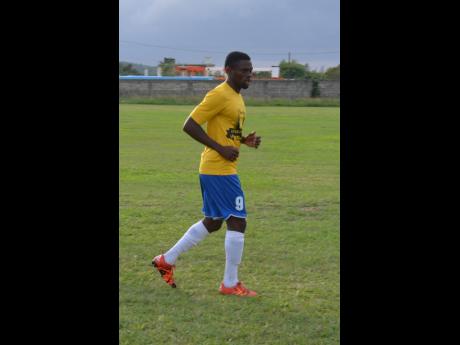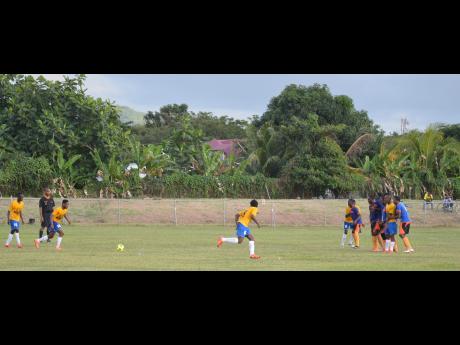Sports an agent of peace building
Sports in general and football in particular, has been cited as one of the key catalysts to violence reduction and prevention in Jamaica.
In his 2010 GraceKennedy Foundation Lecture, titled Sport in Jamaica: A Local and International Perspective, former Foreign Affairs Minister and attorney-at-law, Delano Franklyn stated that sport enjoys a special place in all communities and is an activity to which almost "every young Jamaican brings passion, energy, creativity, discipline and a sense of team spirit".
BEHAVIOUR MODIFICATION
Franklyn also said sports has helped in behaviour modification as it has served an agent of peace-building by reducing hostility and tension among declared foes.
"The primary deodorising agent for this foul smell of negativism, for which this group of youth is largely responsible, is to find ways of challenging their pent-up energies into meaningful endeavours," Franklyn stated.
"While sport may not be the long term solution, it can help to bring the smell down, if not under control. Many of these young men who sometimes get into all kinds of problems with the law, and are virtually uncontrollable in any other setting, become models of discipline and team play while on the field of play," he further noted.
Franklyn also called for more empirical work to be undertaken by researchers and academics to determine the extent to which sport participation can help to reduce crime, as it also serves to bridge the relationship between the police and youth who would otherwise engage in antisocial activities.
"Overtaken by the lewdness and the crudeness which unfortunately have become a staple of Jamaica's social life, these youth immediately become transformed when pulled into a game of sport. Arrogant, rude, disrespectful and downright antisocial behaviour which characterises everyday life, is suddenly transformed into artistry of the feet or the hands, whether playing cricket, football or basketball or on the track," he noted.
"These are the contradictions with which we contend on a daily basis, and perhaps in sport lies the answer to help transform the behaviour of our unattached youth," he argued in the presentation.
Added Franklyn: "Outside of the schools, it is around the communities that many of our national sport associations organise their activities - especially cricket and football. In many of these communities, where high levels of unemployment, underemployment and youth crime can be found, sport activities have been a meaningful way of engaging the unchannelled energy of our young people into meaningful activities."


